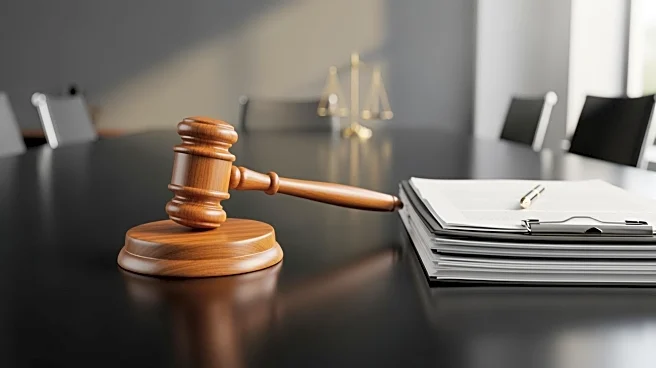What's Happening?
In a coordinated operation, the FBI, supported by Montgomery County police, conducted a search of John Bolton's home in Bethesda, Maryland. The search is part of an investigation into the alleged mishandling of classified information related to Bolton's 2020 memoir, 'The Room Where It Happened.' Bolton, who served as national security advisor under President Trump, has been a prominent critic of the former president. The search, which took place early in the morning, involved sealing off the street and deploying law enforcement personnel to secure the area. The investigation into Bolton's book had previously been closed but appears to have been reopened under new circumstances.
Why It's Important?
This development is significant as it highlights the ongoing scrutiny faced by former government officials regarding the handling of classified information. The search of Bolton's home could have broader implications for the political climate, particularly in how the Justice Department is perceived in its treatment of individuals critical of the Trump administration. The case also underscores the challenges in balancing national security concerns with the rights of former officials to publish their accounts. The outcome of this investigation could influence future policies on the publication of memoirs by former government employees.
What's Next?
The investigation is likely to continue, with potential legal proceedings if evidence of wrongdoing is found. The Justice Department's actions may prompt responses from political figures and civil society, potentially leading to debates about the use of law enforcement powers in politically sensitive cases. The situation may also impact Bolton's public image and his role in political discourse. Additionally, the case could set precedents for how similar situations are handled in the future, influencing the relationship between government officials and the administration they serve.
Beyond the Headlines
The search of Bolton's home raises ethical and legal questions about the balance between national security and freedom of expression. The case highlights the complexities faced by former officials in publishing memoirs that may contain sensitive information. It also brings attention to the ethical considerations of using classified information for personal or political gain. The investigation may lead to discussions about the need for clearer guidelines and processes for reviewing and approving such publications, ensuring that national security is not compromised while respecting individuals' rights to share their experiences.









